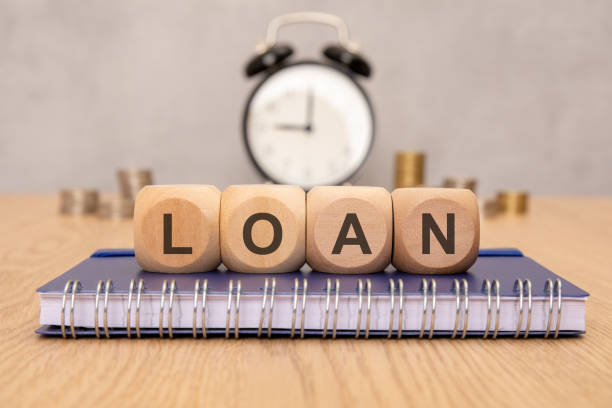
Borrowing money from direct lenders is easy even if your credit rating is not good, but they are hard to manage when it comes to payments. Instalment loans are paid down over a period of time, which makes these loans quite appealing.
Financial experts suggest borrowing money with deliberation. Although lenders will run an affordability check, you cannot just wash your hands by checking your repaying capacity. Never forget that you cannot pass the buck when you are unable to settle your accounts.
What if you miss a payment on your instalment loan?
Under no circumstances are you allowed to miss a payment. Talk to your lender immediately if your financial circumstances have changed. Delays will have negative consequences, and their impact will be in the long run:
- Your credit score will be ruined
Your lender is responsible for reporting your payment behaviour to credit reference agencies. In case you miss an instalment, your lender will give you a maximum of 30 days to pay off the overdue balance. It is a buffer period to stop a lender from informing credit agencies of your default.
However, if you are 30 days past the due date, the missed payment will be recorded on your credit file, which will continue to stay for six years. Lenders take account of missed payments to assess the lending risk. Even one missed payment can pull your credit points.
A drop in your credit score will make it difficult for you to borrow money at affordable interest rates in the future.
- Late payment fees will be added
As you miss a payment on your loan, your lender will charge late payment fees and default fees. Lenders do not offer a buffer period. Once you fall behind on the payment, late payment fees will be automatically added to your account.
The next instalment will include the previous outstanding instalment, late payment fees and accrued interest for the full month. It quickly adds to the total amount of debt, which can be difficult to manage. Over time, you will likely fall into a hole of debt.
- Collection agencies
Your lender will send your account to a collection agency if you miss three payments in a row. Your account will be declared as a default and then the collection agency will chase you to get you a payback.
Dealing with collection agencies can be fretful, but they may help you come up with a solution that suits your financial requirements. Ignoring their emails, letters, and text messages is not a good idea because otherwise, you will end up with a lawsuit.
The impact of the lawsuit will be even worse. You will have to follow the court order, no matter what. The county court judgment will also show on your credit file if you do not settle the whole account within 30 days from the issuance date.
Having a judgment on your credit file will ruin your credit score. In fact, you will not be able to borrow money down the line.
- The risk of repossession
Long-term instalment loans are secured against your property such as a mortgage. A car loan is also an instalment in which your car serves the purpose of security. You are at risk of losing your house or car if you make a default.
If you have taken out a loan for your business, you will end up losing your valuable assets. Business loans follow even stricter rules than a mortgage and an auto loan.
What to do when you are struggling with payments?
Making defaults on your loan can worsen your credit file, which lowers the chances of getting a loan at lower interest rates. You should always be cautious about your repaying capacity, especially if you are looking for instalment loans for bad credit from direct lenders only. Here is what you should do when you are struggling with making payments:
- Contact your lender without further ado
If your financial circumstances have changed, you should immediately talk to your lender. Let them know if you cannot make a payment as per your current plan. Your lender will look over your financial condition before revising your payment schedule.
Make sure you inform them beforehand so they have time to make arrangements before the next instalment is due. A reliable lender can help you when you are in trouble, but they are not bound. Do not expect them that they will always be supportive and kind.
- Clear the dues as soon as possible
In case you have missed the payment, make sure you clear the balance as soon as possible. Some lenders will not expect you to wait until the next instalment is due. You cannot avoid a late payment fee, but you can prevent your credit score from being ruined.
Read your loan contract and check if your lender allows you to make payment even after the due date. Most lenders use auto-debit mode for small instalment loans. In that case, you do not have an option to make the payment once the due date is past.
- Talk to debt management companies
Debt management companies particularly help people struggling with their debts. They can help you come up with a repayment plan that suits your financial circumstances. Debt management companies can talk to your creditors and persuade them to accept less than the due amount. Remember that you will have to pay them some fees for their service.
The final word
Missing a payment on an instalment loan can ruin your credit score. In addition, you will lose your collateral and chances of availing yourself of lower interest rates down the line. In case of struggles with payments, talk to your lender. They will likely help you.
However, you should also borrow money responsibly. Do proper research to choose responsible direct lenders in the UK so you do not end up with an expensive deal. You can take a broker’s help to find a good lender but be prepared to pay brokerage fees.

Jessica Rodz is the Senior Content Writer at Cashfacts. She has a long career in the field of content writing and editing. Jessica has the expertise in the UK lending marketplace where she has worked with 7 different lending organisations and acquired many responsibilities from preparing loan deals and writing blogs for their websites.
At Cashfacts, Jessica is managing a team of experienced loan experts and doing a major contribution in guiding the loan seekers via well-researched blogs. She has done graduation in Business (Finance) and now currently doing research papers on the UK financial sector.





